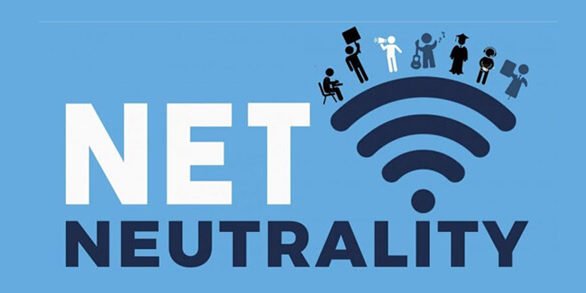Net Neutrality? The last time when I was a part of an intense discussion; I was in a 4:1 group dynamics, where 4 were talking about neutrality and I was trying to reason that the time is not to talk about neutrality, it is about asking what is right and what is not.
For those who have understood the issue to the fullest, and have come up with papers and presentations I really appreciate them for the efforts put in. But let us understand the real “beneficiaries of this net neutrality” phenomena. In the most common words, internet is a platform. It is means to actualize your virtual interactions in multiple forms. Neutral access would also mean – neutral access to common user as well as B2B users. Within common users also, there are those who consume internet for their regular usage, and there are those who excessively use internet. Question is how can the same service be equal to all? Are we not expecting too much from a service that is actually fledgling in a country like India?
To explain the above question let me give some examples. We have postage service in India. You spend 1 Re to send a message via snail mail, now you have these express services and you also have these registered posts / parcel services. Each service costs differently for the purpose they serve. Most importantly the more you pay the faster you get your post. Same way there is this freeway and there is this toll road. Freeway is slow, sluggish, boring, pathetic and much more….whereas you spend premium and you get an access to more speed.
Internet is also a service which falls within the purview of infrastructure very much like the roads and post. India on an average operates from a downward speed of 2 mbps. In some cities they claim that they have provided about 20 mbps, but practically all you get is close to 6-8 mbps speed. Most importantly neutral distribution will mean the ones who need more speed, would be sharing them with those who don’t. This is an unequal distribution, which also doesn’t support the law of demand and supply. A service that is not free cannot be justified by an equal distribution argument, as it would cost differently to get different amount of service.
India is less endowed with internet speed. The equal distribution is bound to affect those who have set these lines (internet) for the country. Think of those who have spent billions of dollars to lay the lines for the users. Let’s understand some facts here. Singapore has 121.63 mbps download speed prevalent in consumer homes, Japan 78 mpbs and USA 35 mpbs. The bigger fact is that there is no upper limit to speed that a consumer can get. There have been experiments, which have made 1 gbps and 1 tbps data transfer possible. This also infers that the speed is a function of making it available. And to put these efforts we will need entrepreneurs. If we don’t encourage them by paying premium, why would they spend money. The question is do you really think the government of India is going to give you this speed all by themselves. They would not need individuals to lay these lines?
Most importantly problem of access will not stand good once we would have 1 gbps kind of lines. Google fiber has already experimented it in USA which means it is not an illusion, it is a reality. So do you think an internet service provider will stop a user to use content? Not if they pay money to access these lines. It is the content publisher who may need to be on a premium platform to be able to get the visibility.
Let’s understand one more concept. Something called information is not free. Anything that uses a medium is not free for that matter. So if a youtube wants to give its consumers fast access they will have to pay premium. We are intelligent, we need to decide for ourselves who will benefit from this whole argument. In fact the more competition in the market, the more economy driven the market the more benefit to the end user. If this was not true, a viewer of India would have been able to get more than 750 channels in the country. India is one of the biggest television markets of the world, and last one to become free – non monopolistic player. Yes if we extend the fundamental rights according to the constitution of India – the right argument should be that the basic speed (in Indian context 2 mpbs or more today) should be made available free, however the access must be within a premium services. This is exactly like the free to air TV channels and paid TV channels. Government of India should make certain content which is directly linked with the well being of people of India available for free, but rest all must be premium.
According to the freedom house report India is still a partially free country on the Internet. There have been many instances where the content was asked to be removed from a particular website. Those who argue about net neutrality need to study the internet freedom and generate a debate towards the real freedom on the internet.
So, let’s try to generate debated about better infrastructure for internet usage. Let’s not get conned by the heavy consumption driven businesses to push us to promote them, so that they can get huge reduction on their monthly pay out on the platform usage.







